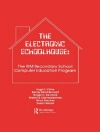Productive Remembering and Social Agency examines how memory can be understood, used and interpreted in forward-looking directions in education to support agency and social change. The edited collection features contributions from established and new scholars who take up the idea of productive remembering across diverse contexts, positioning the work at the cutting edge of research and practice. Contexts range across geographical locations (Canada, China, Rwanda, South Africa) and across critical social issues, from HIV & AIDS to the legacy of genocide and Indian residential schools, from issues of belonging, place, and media to interrogations of identity. This interdisciplinary collection is relevant not only to education itself but also to memory studies and related disciplines in the humanities and social sciences.
Jadual kandungan
List of Figures; Acknowledgments; 1. Productive Remembering and Social Action; 2. Waiting in the Grey Light: Nostalgia, Trauma and Currere in W.G. Sebald’s Austerlitz; Part I: Memory as Phenomenon; 3. Expressions of Policy Effects: Hearing Memories of Indian Residential Schools; 4. Thirty Years Before/After: My Memory of My Brother Quan’s Life Experience in Mao’s Time as an Honorable Worker (1949–1976) and in Deng’s Time as ‘Laid-off’ (1978–1997); 5. Productive Remembering for Social Action and Change: Exploring Memories of the Aftermath of the 1994 Genocide through the Voices of Rwandan Women; 6. Relearning as Remembrance: Three Guineas, Implication, and Melancholia; 7. Remembering French in English: The Meditation of an ‘Assimilated’ Acadian; 8. Glossing Faery: Imagine If You Can’t Remember!; Part II: Memory as Method: A Catalogue; 9. Oil Rights/Rites: Autoethnography as a Tool for Drilling; 10. Seeing a Question: Using the Visual to Unfurl Memories; 11. A Few Pieces of Thread: Collage, Intragenerational Memory, and Place;12. The Teacher’s Dream: Performances of Pedagogical Desire and Memorial (Re)construction in Glee; 13. Of Voices and Punishment: The Maternal in Jane Campion’s The Piano; 14. Artifactual Memory: Fragmentary ‘Memoirs’ of Three Eighteenthand Nineteenth-Century Moveable Books about Their Child Owners; 15. Through the Lens of Social Memory: Studying Youth Sexuality and Condom Use in Contemporary China; Part III: The Future of Memory Studies; 16. Telling Memory’s Story: Memory Studies from the Past to the Future; Contributors; Author Index; Subject Index.












